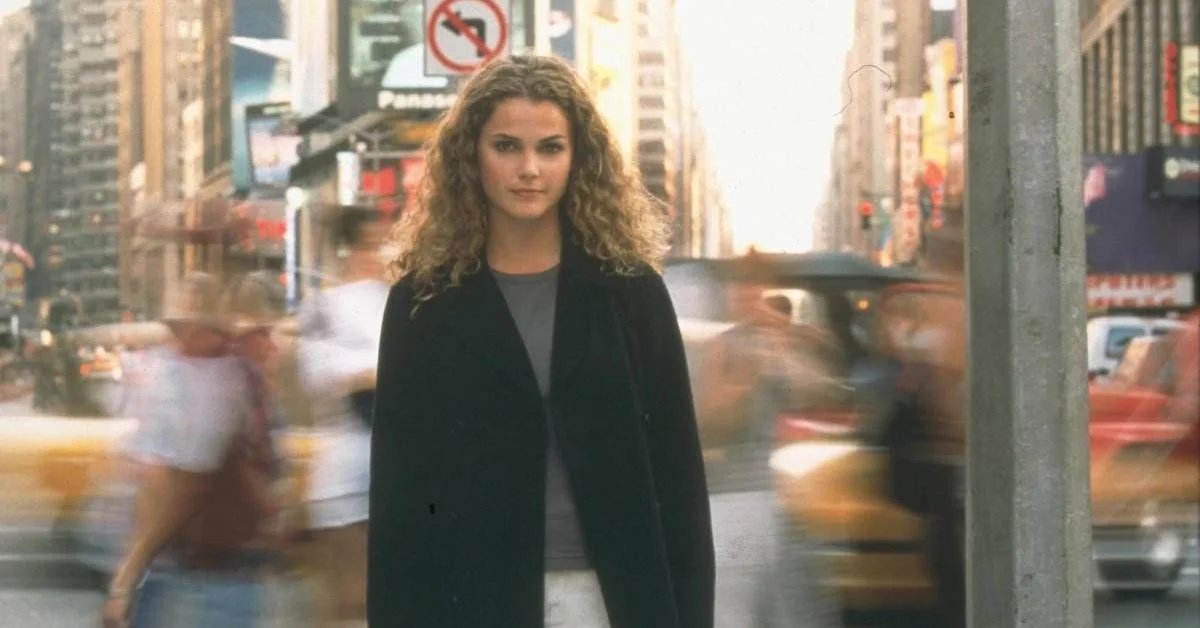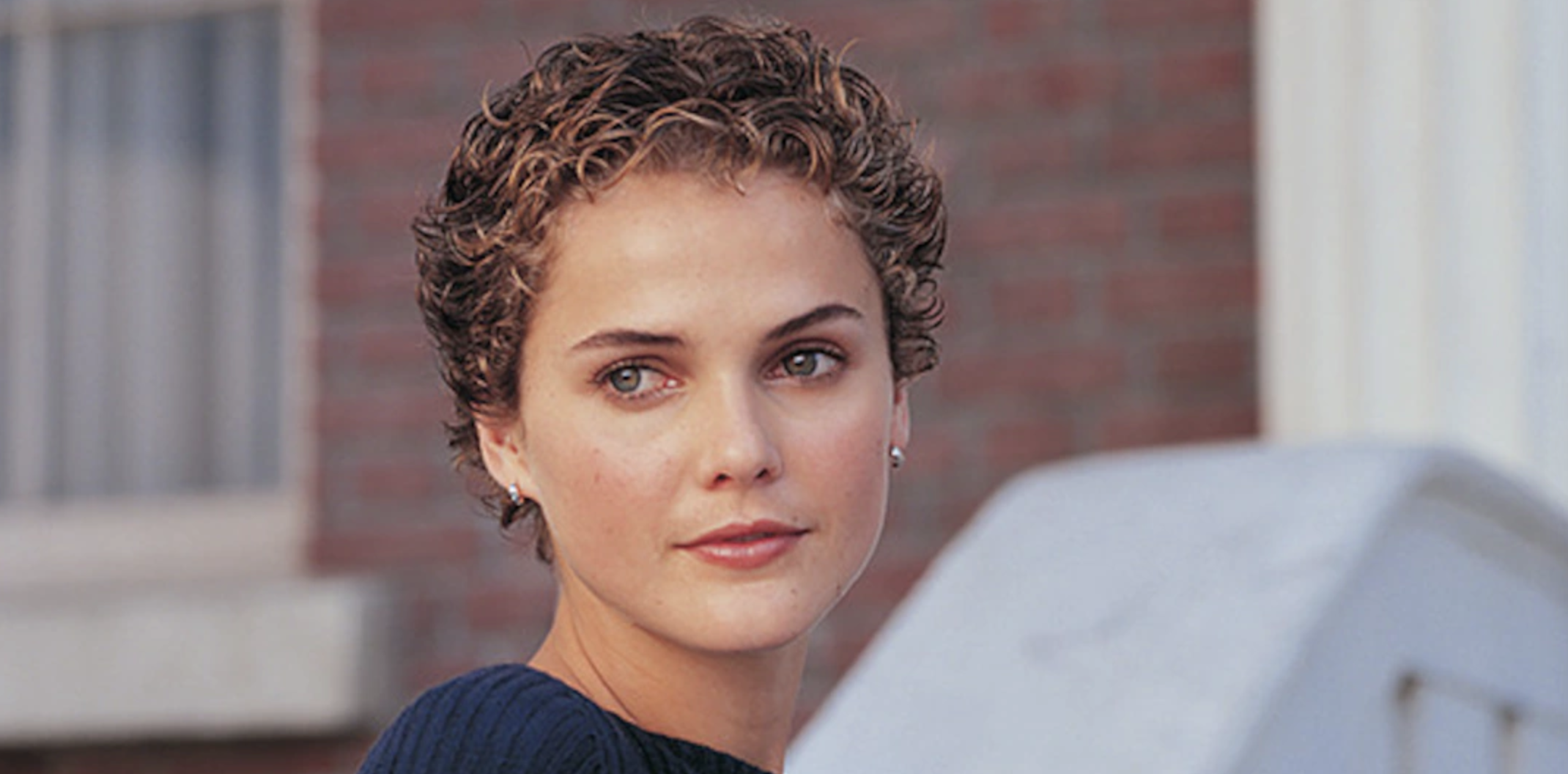We Used to Be Friends: 98-99, Felicity and how teenagerdom follows you to college
by Emily Maesar, Associate Editor, TVJawn
There’s something so specific about graduating from high school but still being a teenager. The fact that there’s, at minimum, a year of being an actual teenager after you are done with the hell that is your forced public education. Which is, after all, the main measure we have for ending adolescence. High school ends and you either join the workforce or, as is usually thought of as “tradition,” you go off to college.
Now, in recent years (roughly a decade or so) there’s been a larger conversation about forcing teenagers into making huge decisions about their lives and their futures. Especially when you consider all the American teenagers who take out thousands upon thousands of dollars in student loans. There’s certainly something to be said for the lack of life experience outside of the house, the lack of impulse control, and the influx of the real world. However, it’s not like anything can keep out the real world—not even time. Which is why the freshman college experience should be counted among the great settings for teen stories. And it’s the place where the most important teen show of the 1998-1999 American TV series is set.
Felicity, created by J.J. Abrams and Matt Reeves, aired on the WB on September 29th, 1998. It premiered to over 7 million viewers, though the average viewership dipped a bit as it continued. Which, all things considered, is really not that rare—pilots are often some of the most watched episodes of any given show. Despite the drop in viewership, it was a show that held its own in the first season with the WB’s other star shows at the time like Dawson’s Creek, Buffy the Vampire Slayer, and Charmed (a more adult supernatural show that premiered during the 98-99 season, as well).
It begins at the ending of high school. Literally. It starts at graduation! Felicity Porter (Keri Russell), in a cap and gown, has Ben Covington (Scott Speedman) sign her yearbook and what he writes is… pretty wild. Mostly because it’s the kind of thing you write to someone you secretly always liked and just need to get off your chest before you never see them again. Except that Felicity has actually always had a crush on him and isn’t totally sure where she’s going to college. So, she ends up following him to New York and going to the same school as him. The most impulsive teen choice ever, which is part of the reason why this show is so painfully a teen show. Felicity even says, into a tape recorder to her friend, “What if high school went away, but the feeling didn’t.”
And that’s what college shows represent in the grand scheme of teen shows. It’s very “high school never ends” from that Bowling for Soup song. Which is perfect for the way that college feels, especially the first two years of it. Once you’re old enough to drink (21 in the US) things start to feel a bit different, but those first two years are pure teenage gold. You’ve got minimal supervision and there are so many new people that you have to build deep and important relationships with—something that can be very difficult for many teens who move far away from home. Which is where Felicity lands. She moved to New York for a boy and she realizes he’s dating someone the second she gets there. So, she has to pivot. Except Felicity is the kind of show that, after mostly four seasons of very normal teen romantic and interpersonal drama, introduces time travel and allows the main character to create an alternate timeline where she picked the other guy. Considering it was the same TV season that saw the episode of Buffy the Vampire Slayer “Normal Again” where the show asks the question “what if Buffy wasn’t a slayer and she was just a girl in a mental hospital.” What I’m saying is that 2002 was a very interesting year with big, fun “what ifs,” and I suppose it’s not surprising given the J.J. Abrams of it all.
So, while Felicity was holding down the fort, storywise, the behind the scenes surrounding the show got… a little bit bananas. This is less common these days, but back in the 1990s there wasn’t a lot of media and so whenever something drastic happened on a show that lots of people were watching, there was drama. The start of the 1990s has Murphy Brown having a baby during sweeps week and the sitting Vice President (and man who was running for reelection) Dan Quayle used Murphy Brown as an example of family decay because she was a single mother. Like, that’s the level of care and concern we were living in. Anyway, going into season two of Felicity, Keri Russell had her hair cut into a bob and it was the snip heard round the world. Her haircut was blamed for the decline in viewership, which surely couldn’t be equated to the timeslot change to WB’s weakest night (Sunday).
But while Felicity was getting people pulled into the drama of teen college romance and friendship stateside, the Canadian teen show Big Wolf on Campus was starting up. A show that is so specifically of its time that it’s a little painful to watch, in all honesty. But it’s also a show that I have really fond memories of because I watched it on Fox Family (before it became ABC Family and then Freeform even later). Big Wolf on Campus names drops the film Teen Wolf, but it actually has a fair amount in common with the MTV adaptation of the film that came on years later—if it were a comedy. It’s part of a rich, albeit weird, tradition of very weird, but remarkably normal (in terms of loudness and comedy stylings) half-hour shows for teens.
Overall, the lead into 1999 was quite strong with all the teen shows that were still running. To many, 1999 was considered the “best movie year ever,” but the teen shows that premiered are nothing to sneeze at. Something was in the water leading up to the 1999-2000 season. Maybe it was the new millennium and Y2K, or maybe it was that all the people who’d been toddlers in the 1980s were finally old enough to start film and television careers and seemed to all have fresh, new takes. Either seems possible, though I imagine it’s some combination of the two. All I know is that Felicity was right—high school might end, but the feeling never does. It’s why we keep revisiting teenagerdom, and why we always will.



